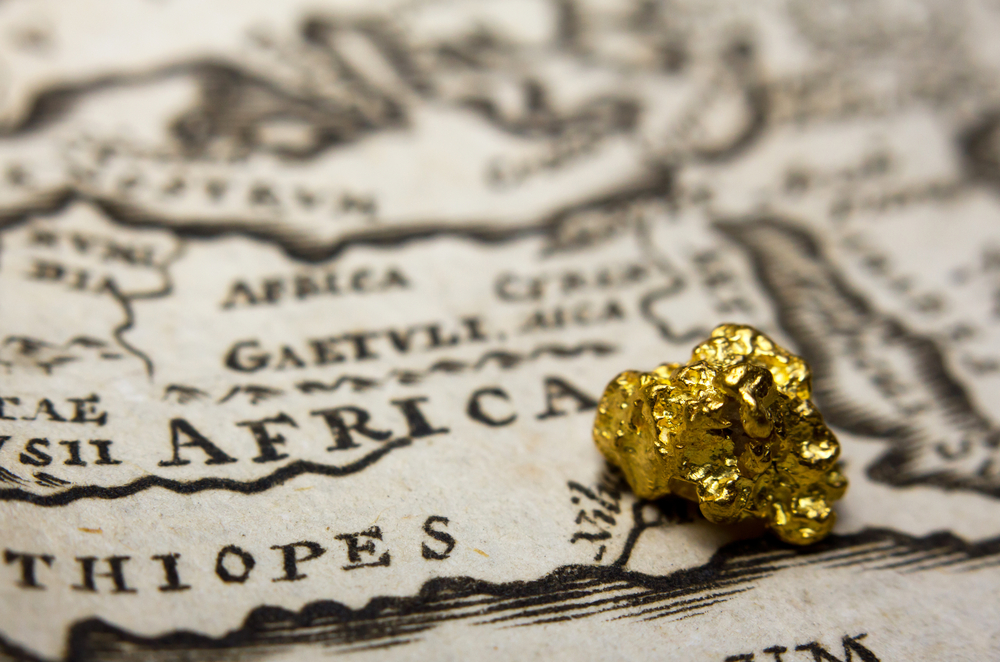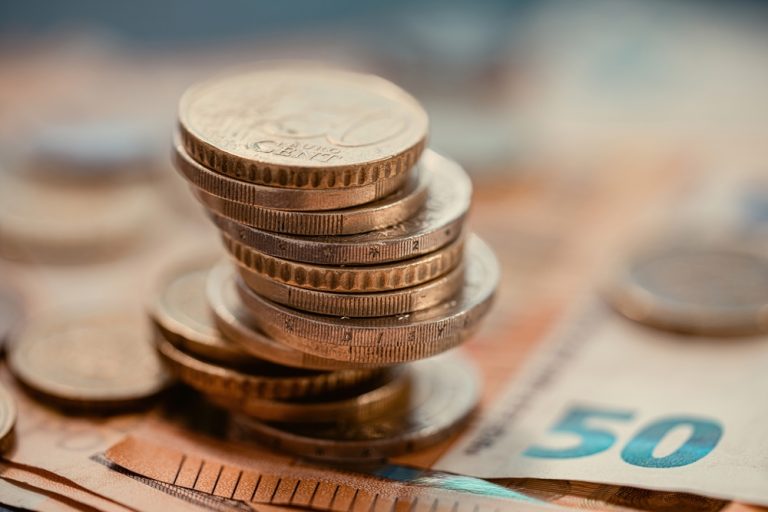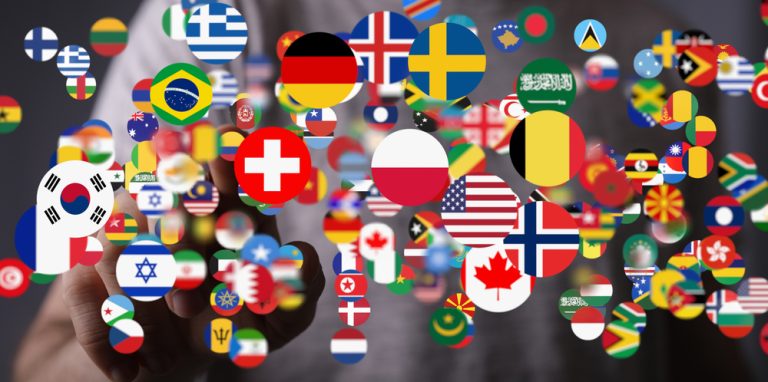
Françafrique’s “Steep Decline” is getting closer to the terminal stage
The colonial empires of European countries began to disintegrate rapidly after the end of World War II, and by the 1980s the process was almost complete. Some countries broke all relations with their former colonies but others have tried to maintain cultural, economic and even political relations with them to a greater or lesser extent. In West Africa, the greatest success of such “preservation” was achieved by France. The credit for this advantageous state of affairs for the country belongs to Charles de Gaulle, who, at the beginning of his presidency in 1959, was very quickly aware of an important truth. Against the background of the impending defeat in Algeria, it was clear that this would cause a “domino effect” if the example of this Arab country would be followed by all other French colonial countries. It was no longer possible to leave neighboring states such as Morocco and Tunisia in the French sphere of influence, but for the rest of the West African colonies the first president of the Fifth Republic found a perfect scheme expressed in logic of “leave to stay”. The result was that the former colonies in this region gained independence only formally, maintaining in the meantime almost total economic, financial and even political dependence on Paris.
The current policy of Paris in these countries is based on the construction of the so-called “Françafrique zone”. This system of informal control covers about 16 countries, including Chad, Cameroon, Gabon, Congo, Mali, Senegal and other states. In addition to direct ownership of enterprises, fields and infrastructure in former colonies, France exerts its influence on these countries through financial pressure through the so-called “CFA franc zone”, which is divided into two parts: the zone of the Central African franc (6 countries) and the zone of the West African franc (8 countries). In fact, France takes over the monetary issue of these states, keeping their financial sector under strict control and almost as a hostage. In exchange for a guarantee of convertibility of CFA franc by France, the countries that use this currency agreed to place 65% of their foreign exchange reserves in a special account in the Treasury of France. The metropolis was also given a veto over the monetary policy of the countries. It is difficult to argue that, thanks to the presence of the CFA franc, France’s colonial preferences are evident. To achieve some political ends, direct military force is often used as well and this is why, the main military bases of the Fifth Republic are located precisely in the Françafrique zone.

In order to maintain the high level of development of its own economy, France constantly exploits its controlled states. This is probably the reason why the “Françafrique” countries are among the poorest of the African continent. Nevertheless, they are very rich in natural resources that are badly needed by the French economy: gold, diamonds, uranium, lithium, beryllium and thorium. France also makes good use of its military presence in these countries. Since the mid-2000s, the Sahel, which includes Mali, Niger, Burkina Faso and Chad, has been a region of high terrorist danger, with Al Qaeda, Boko Haram and later ISIS. The local population suffered from Islamist terrorist attacks, and for the French it was the perfect excuse to further increase their “peacekeeping contingents” in their next Operation Barkhane. They did not excel at fighting terrorists, but they were often involved in replacing pro-French dictators and “presidents” with more loyal ones and the sight of French soldiers always reminded the current leaders of the “Françafrique” and what could happen to them if they became too arbitrary. Moreover, the policy of “rotation” of governments has been standard French practice in this region since the 1960s. The French have also benefited financially from terrorist instability. For example, Mali, which suffered most from terrorism, became one of the key transit points for drugs, where the French were clearly “involved”. The fight against terrorism was only a pretext – after all, instability is more profitable for making money than order, which would deprive profits.
But this free and monopolistic position for France could not last forever. Today, French policy in Africa is in crisis, and “Françafrique” is crumbling before our eyes. At the end of 2020, the President Emmanuel Macron issued a statement acknowledging this inevitable and unfortunate transformation for his country: “For decades, we have had very institutionalized relationship with Africa, especially with governments and established companies. That said there has been a certain amount of resentment. There’s also a strategy that African leaders sometimes pursue with foreign powers like Russia or Turkey which play on post-colonial resentment.”
Of course, these tendencies did not come from the “resentment” that Africans could well have for the French policy of plundering their resources and exploitation. Many see the reason for the weakness of Macron as president and the general weakening of the military and economic potential of France itself. These signs are valid but are only “secondary”. France’s changing role was part of an overall process in which the population and leaders of the “Françafrique” countries, inspired by the changes in the world, were not ready to continue living under the domination of the former colonizers. Their confidence in their own abilities was growing, and it was reinforced by the emergence of a competitive world politics, which only became apparent after the conflict in Ukraine began, but had emerged much earlier already in the early 2010s. Under such conditions, African leaders could well “escape” from France and gain the tutelage of new influential states that could provide them with better political and economic conditions of cooperation and patronage.
In addition to Russia and Turkey mentioned by Macron, China with its economic expansion has become a key player in the region. Chinese business is actively investing even in very risky markets in Africa. There are a lot of “Françafrique” infrastructure and economic projects in the countries. It essentially echoes France’s strategy, but has much more potential to do so. China’s influence is clearly demonstrated that with the debts of West African countries with leaders such as Cameroon, Togo, Niger and Guinea, the rest of the countries have become seriously financially dependent. And where there are debts, it is very easy to influence the policies. Turkey is much more modest than China in terms of economic projects, but it is very active in cultural and humanitarian work in Islamic countries. In February, Turkish President Recep Tayyip Erdoğan attended the opening of a 50,000 seats stadium built by a Turkish contractor during his visit to Senegal. And this is just a local example, if we take in systemic view, the number of Turkish embassies in Africa more than tripled from 2002 to 2018, from 12 to 41. If we talk about the key area of Russia in the region, it is security. Almost everyone heard about the activities of the famous PMC Wagner in Mali and in Central African Republic (CAR) and other African countries, although Russians are also working in energy and mining. In the last 5 years, the process of squeezing France out of the region has intensified dramatically, and it is worth examining it on the example of individual countries to assess the overall picture:
– The pioneer was the poorest country of the “Françafrique” – the Central African Republic(CAR). Since 2012, the country has been in a permanent civil war between the rebels of the Islamic groups Séléka, the Christian Anti-balaka and the government of the country. Despite the chaos and the constant change of leaders, France maintained control of the country. In 2018, new President Faustin-Archange Touadéra came to power, and he did not want to become another bargaining chip, and instead of relying on the country’s former patrons, he began to seek a partnership with Russia, represented by the already mentioned PMC Wagner, to secure himself. For a long time, Touadéra tried to maneuver between different interests, but in 2020 the former pro-French Francois Bozizé tried to overthrow him by force, and the help of Russian military advisers finally pushed Touadéra into the arms of Russia. There is no doubt that step by step France will cease to play an important role in this country.
– Guinea has been one of the most problematic states of the “black Africa” for France since 1958, when it was one of the first to gain independence. Seeking real independence, the country’s first president, Ahmed Sékou Touré, led Guinea out of the “CFA franc zone” in 1960. In September 2021, France faced an uprising in Guinea, where the pro-French president, Alpha Condé, was removed from power. The uprising was organized by Mamadi Doumbouya, head of Guinea’s Special Operations Forces, a young officer who dramatically changed the balance of power in his republic. The Chinese and Russians now play a key economic role there, mining the country’s main wealth, bauxite.

– In Mali in 2012, the Tuareg rebellion began, trying to create their independent state in the north, Azawad. However, the rebels were soon replaced by even more aggressive and violent Islamists. In light of the ineffectiveness of Operation Barkhane against the Islamists, the French foreign policy has been completely discredited over the past few years. If the coups of 2012 and 2020 maintained the French influence, in May 2021, when Mali’s army captured President Bah N’Daw, Prime Minister Moctar Ouane and Defense Minister Souleymane Doucouré, it was clear that Chinese-loyal influence groups were behind it. Assimi Goïta, head of the junta that ran Mali’s 2020 coup, announced that N’Daw and Ouane had been stripped of their powers and new elections would be held in 2022. The West African organization ECOWAS and France continue to impose sanctions against a government that is not going to take their interests into account, but in response there are only demands for the immediate withdrawal of French troops from Mali, which eventually had to be implemented.
– There have even been two coups d’état in Burkina Faso in the last year, and each of them has only weakened France’s position. During the coup of January 23-24, 2022, a group of soldiers overthrew and detained the pro-French President Roch Marc Christian Kaboré. Then France, given the experience of Mali, immediately tried to “bribe” the new military president, Paul-Henri Sandaogo Damiba, and the outcome was unsuccessful. On September 30, the Cobra special forces units, with the support of the Russian PMC Wagner, overthrew Damiba. Cobra commander Ibrahim Traoré assumed the post of the country’s leader. Behind these events one can see the same interests: Russia and China. The reasons for the events are also the same as Mali: the population is tired of corrupted French presidents and the failure of Operation Barkhane.
In total, in less than five years, France has lost 4 of the 16 countries which were under its control. National protests are brewing in three other countries in the region such as Gabon, Chad and Niger, but so far, the authorities have managed to stop them. Gabon is one of the richest oil-producing countries in Africa and its loss would hurt France. Chad, with its loyal French president from the Déby clan, is more stable, but because of its poverty and geographic location in the center of the continent it is less important from a strategic point of view. The most dangerous is the loss of Niger. Niger is now a key country for French control of the Sahel; after the withdrawal of French troops from Mali, it is where the main contingent of French troops is stationed. Niger also produces most of the uranium for the French nuclear industry. However, there is serious dissatisfaction in Niger with the country’s fully subservient role in its relations with France. This is fraught with new anti-French demonstrations and a change of power in the future. The loss of Niger could become a “point of no return” for France in the decomposition of the Françafrique. The richest countries in the CFA Franc Zone, Cameroon and Senegal will also reduce their dependence on France in a more evolutionary way. So far, only Ivory Coast, Togo, and Benin seem secure for France, but these three countries will be mere shadows of their former glory if France manages to maintain their influence there. Besides if the most negative scenarios come true, the last and key instrument of the Françafrique’s “strength”, the CFA franc can be abandoned as well.


I agree with your point of view, your article has given me a lot of help and benefited me a lot. Thanks. Hope you continue to write such excellent articles.